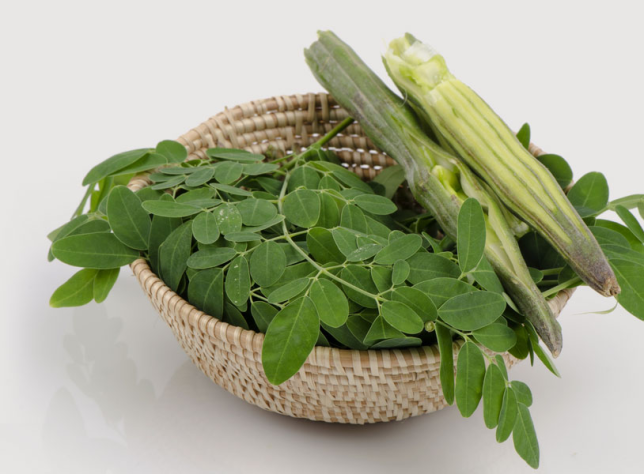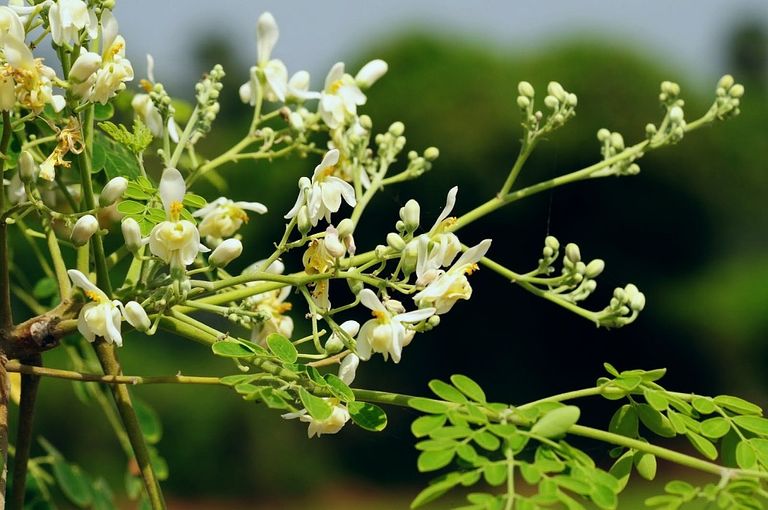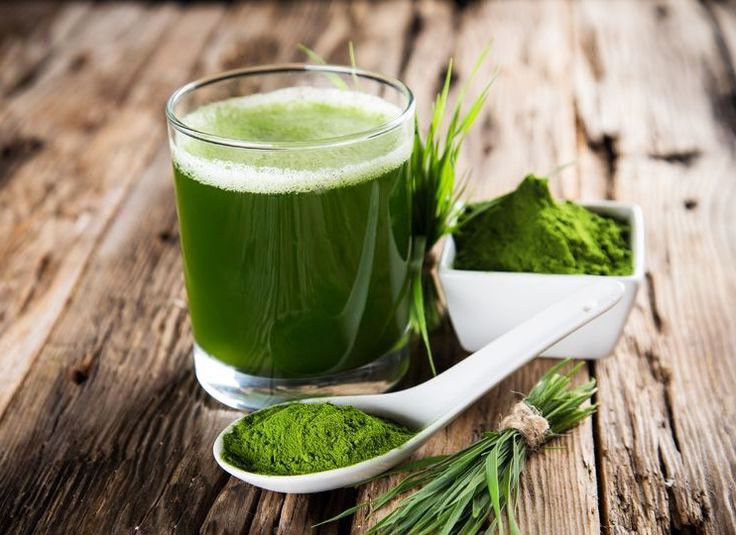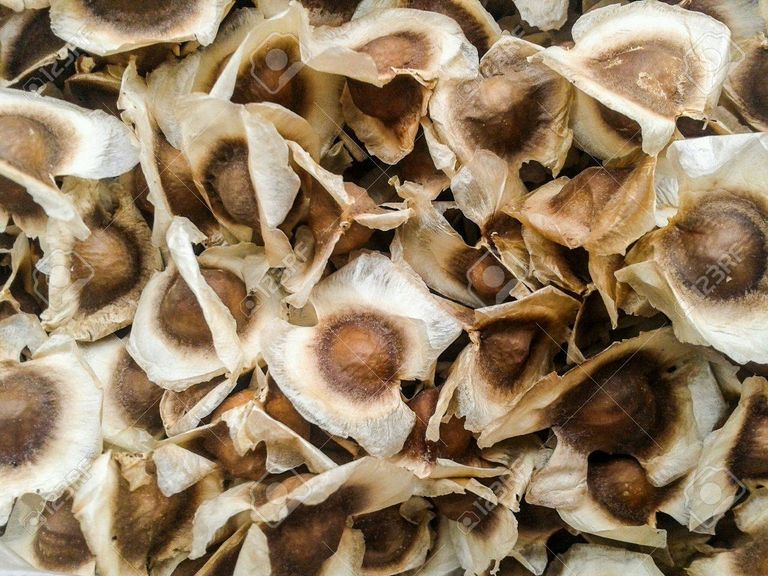
Moringa is a plant that has been used for its medicinal properties and its benefits to our health, as antiviral, antidepressant, anti-inflammatory, and antifungal.
Moringa contains components such as Vitamin A; thiamine (vitamin B); riboflavin (B2); niacin (B3); folic acid; ascorbic acid; calcium; potassium; magnesium; phosphorus and zinc.

Protects and nourishes the skin and hair, because thanks to the seed oil of the moringa, the hair is protected against free radicals, so it remains clean and healthy. Its proteins also protect skin cells from environmental damage and pollution.
Moringa protects the liver from damage caused by some drugs, accelerating its recovery process.

One of the components of moringa is niazimycin, which suppresses the development of cancer cells; for this reason, prevents this disease.
Constipation, gastritis, and ulcerative colitis can be treated with moringa extracts. Its antibiotic and antibacterial properties help inhibit the growth of pathogens. On the other hand, its high B vitamin content helps to improve digestion.
Moringa has antifungal, antibacterial, and antimicrobial characteristics.

The calcium and phosphorus contained in the moringa help maintain healthy and strong bones. It is also suggested as part of arthritis treatment.
Moringa antioxidants prevent heart damage and have been shown to help keep the heart-healthy.
Moringa helps wounds heal faster and reduces scarring.
Moringa extract helps reduce the amount of glucose in the blood, as well as sugar and protein in the urine.
Moringa may help reduce some asthma attacks and protect against bronchial constrictions. It protects against kidney disorders.
It reduces the chances of developing kidney, bladder, or uterus stones thanks to its antioxidant properties.
Moringa contains isothiocyanate and niaziminin, which help stop the arteries from thickening.
Moringa extract can stop the dilation of the retinal vessels; it prevents the thickening of the capillary membranes and inhibits retinal dysfunction.
Thanks to the compounds of moringa, the body becomes able to absorb more iron and increase red blood cells. This, in turn, helps to treat and prevent anemia.
Although the benefits of moringa are varied, it is recommended that if you use it you should consult a medical professional.
On the other hand, there are risks if it is combined with other medications.
It is suggested to avoid mixing moringa with drugs degraded by the liver since the extract of this plant can slow down the process and cause complications.
It should not be taken for more than 2 to 3 weeks, whether in the form of tea, capsules, seeds, or powder, especially if there is no accompaniment by a health professional.
Another thing to keep in mind is that many diabetes drugs lower blood sugar levels, as does moringa, and combining it could lower blood sugar levels more than recommended.

Recommendations for planting a Moringa tree
To plant a Moringa tree we must choose a sunny place where it can receive at least 6 hours of sunlight and must be away from windy areas.
The soil should be deep, rich in organic matter, fertile, and well-drained.
The moringa seed or a small moringa tree should be sown directly into the soil or in a pot.
It should be watered immediately after planting and tamping. Once the plant is established, it is not necessary to water it continuously unless there is a severe drought.
It is recommended to feed the moringa tree with some manure, compost, or fertilizer to ensure that it thrives during the growing process.
If you want to consult a scientific study on moringa, you can visit Moringa oleifera: a multipurpose tree for the dry tropics
Another scientific study published in the African Journal of Biotechnology showed in vitro that moringa leaves destroy malignant cells and therefore its active ingredient could be used to prevent or control the progression of cancer and leukemia.